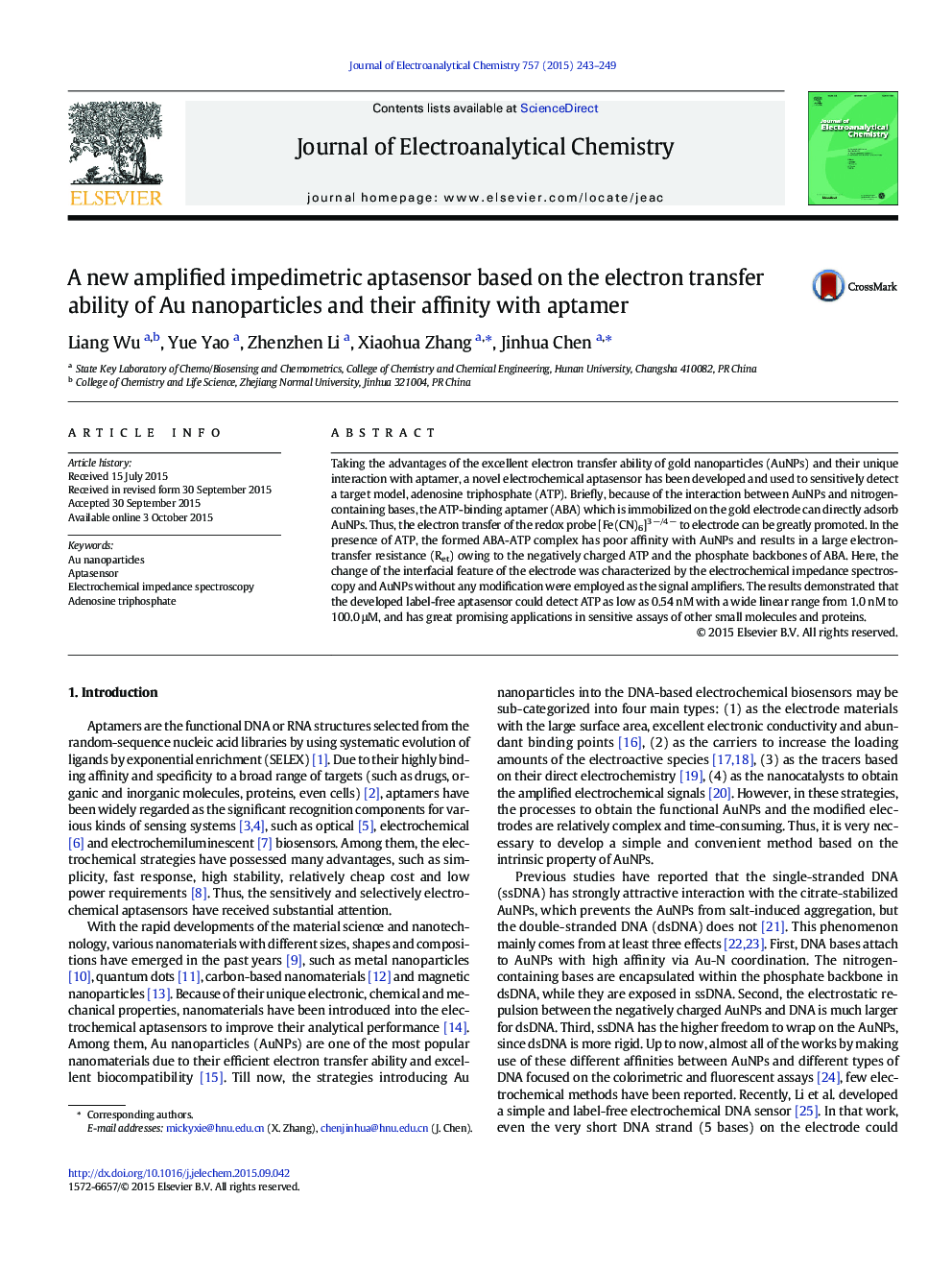| کد مقاله | کد نشریه | سال انتشار | مقاله انگلیسی | نسخه تمام متن |
|---|---|---|---|---|
| 218228 | 463188 | 2015 | 7 صفحه PDF | دانلود رایگان |

• A novel amplified impedimetric aptasensor was developed.
• It was based on the unique interaction between AuNPs and aptamer.
• AuNPs without any modification were employed as the signal amplifiers.
• This sensor is very simple and shows good analytical performance for ATP detection.
Taking the advantages of the excellent electron transfer ability of gold nanoparticles (AuNPs) and their unique interaction with aptamer, a novel electrochemical aptasensor has been developed and used to sensitively detect a target model, adenosine triphosphate (ATP). Briefly, because of the interaction between AuNPs and nitrogen-containing bases, the ATP-binding aptamer (ABA) which is immobilized on the gold electrode can directly adsorb AuNPs. Thus, the electron transfer of the redox probe [Fe(CN)6]3 −/4 − to electrode can be greatly promoted. In the presence of ATP, the formed ABA-ATP complex has poor affinity with AuNPs and results in a large electron-transfer resistance (Ret) owing to the negatively charged ATP and the phosphate backbones of ABA. Here, the change of the interfacial feature of the electrode was characterized by the electrochemical impedance spectroscopy and AuNPs without any modification were employed as the signal amplifiers. The results demonstrated that the developed label-free aptasensor could detect ATP as low as 0.54 nM with a wide linear range from 1.0 nM to 100.0 μM, and has great promising applications in sensitive assays of other small molecules and proteins.
Figure optionsDownload as PowerPoint slide
Journal: Journal of Electroanalytical Chemistry - Volume 757, 15 November 2015, Pages 243–249